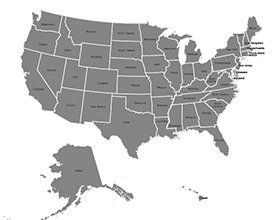Benefit Buzz - July 2025
Benefit tips brought to you by MFC Benefits, LLC

Learn more about the U.S Supreme Court upholding state ban on gender-affirming care for minors and PCORI fees are due July 31,2025.
U.S. SUPREME COURT UPHOLDS STATE BAN ON GENDER-AFFIRMING CARE FOR MINORS
On June 18, 2025, the U.S. Supreme Court upheld the constitutionality of a Tennessee law banning certain medical care, such as puberty blockers and hormone therapy, for transgender minors under the age of 18. As a result of the ruling, the law will remain in effect and may shape how courts and legislatures approach gender-affirming care nationwide.
Tennessee’s Senate Bill 1 (SB1) prohibits certain medical treatments (such as surgery, puberty blockers and hormones) that are intended to allow a minor “to identify with, or live as, a purported identity inconsistent with the minor’s sex” or to treat “purported discomfort or distress from a discordance between the minor’s sex and asserted identity[.]” The plaintiffs alleged that SB1 violated the equal protection clause of the 14th Amendment.
The Supreme Court, in a 6-3 ruling, held that SB1 does not classify individuals based on sex or transgender status, and therefore, the law did not trigger heightened scrutiny. Instead, the Court applied the more deferential “rational basis” standard, which requires only that there are plausible reasons for government action. The Court found that SB1 “clearly met” this standard of review and did not violate the equal protection guarantee of the 14th Amendment, reasoning that the judiciary must grant states “discretion to pass legislation in areas where there is medical and scientific uncertainty.”
Notably, the Court found their 2020 decision in Bostock v. Clayton County, which held that discrimination on the basis of sexual orientation constitutes sex discrimination under Title VII of the Civil Rights Act (Title VII), did not alter the analysis and declined to address whether Bostock’s reasoning reaches beyond the Title VII employment discrimination context.
PCORI FEES ARE DUE BY JULY 31, 2025
The Affordable Care Act requires employers with self-funded health plans and health insurance issuers to pay Patient-Centered Outcomes Research Institute fees (PCORI fees). The fees are reported and paid annually using IRS Form 720, the Quarterly Federal Excise Tax Return.
Form 720 and full payment of the PCORI fees are due by July 31 of each year and generally cover plan years that end during the preceding calendar year. For plan years ending in 2024, the PCORI fees are due by July 31, 2025.
The PCORI fee amount is based on the average number of individuals covered under the plan. Final rules from the IRS require employers with self-funded health plans to use one of three alternative methods to determine the average number of individuals covered under the plan for a plan year: the actual count method, the snapshot method or the Form 5500 method. That number is then multiplied by the applicable rate for that tax year ($3.47 for plan years ending on or after Oct. 1, 2024, and before Oct. 1, 2025, or $3.22 for plan years ending on or after Oct. 1, 2023, and before Oct. 1, 2024).
To assess their obligations, employers should:
• Determine which plans are subject to the PCORI fees;
• Assess plan funding status (insured versus selfinsured) to determine whether the issuer or the employer is responsible for the fees; and
• Select an approach for calculating average covered lives for self-insured plans.
The IRS provides helpful resources regarding PCORI fees, including a chart on how the fees apply to specific types of health coverage or arrangements.
Provided to you by MFC Benefits, LLC
© 2025 Zywave, Inc. All rights reserved
Download the PDF copy here.











